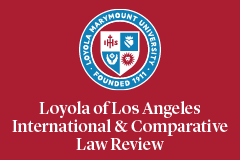Abstract
While comparative law has become a key discipline, its instrumentalist use has turned out to be a powerful weapon: it is the ‘pen’ by which the identity of and differences in law’s geopolitics are continually written and rewritten. Given its attractive functionalist essence, comparative law is gaining increasing international credit as a way of developing newer theories of sovereignty and governance in a framework in which law is conceived of less as a set of rules and more as a symbolic vestimentum of global soft power. The present contribution critically investigates the relationship between distortive views of comparative law’s geopolitics and the intimate essence of the doctrine aimed at creating the ‘aspatial’, unbounded, illimitable (and hence intangible) liberal global order whose governance appears to transcend the idea and form(s) of law through which the ‘politicization’ and ‘juridification’ of modernity have been achieved in the last century. In doing so, it also addresses why such an alliance has made it easier to ‘discover’ and ‘sell’ the smooth and rectilinear land of the figuratively unspoken and unwritten as the terra incognita that lies over what is created by the constructivist political intervention(s) of the modern nation-state.
Recommended Citation
Luca Siliquini-Cinelli,
The Age of ‘Depoliticisation’ and ‘Dejuridification’ and its ‘Logic of Assembling’: An Essay Against the Instrumentalist Use of Comparative Law’s Geopolitics,
37 Loy. L.A. Int'l & Comp. L. Rev. 215
(2016).
Available at: https://digitalcommons.lmu.edu/ilr/vol37/iss2/3


